Find Help
More Items From Ergsy search
-
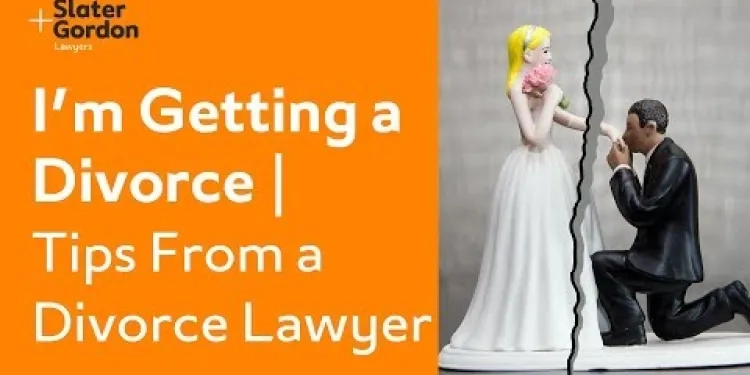
I'm Getting a Divorce | Tips From a Divorce Lawyer
Relevance: 100%
-
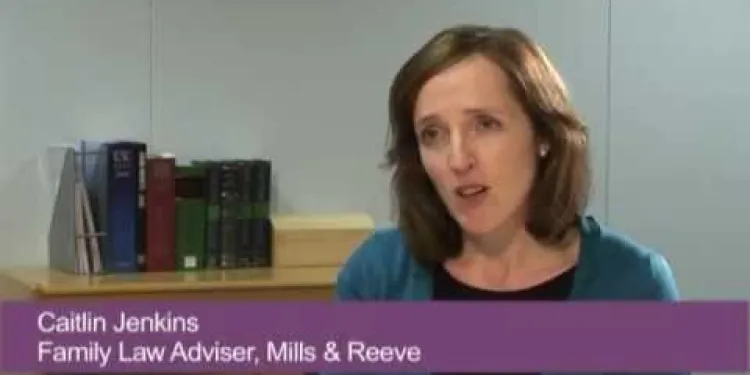
Divorce UK: What happens with the money in a divorce?
Relevance: 52%
-
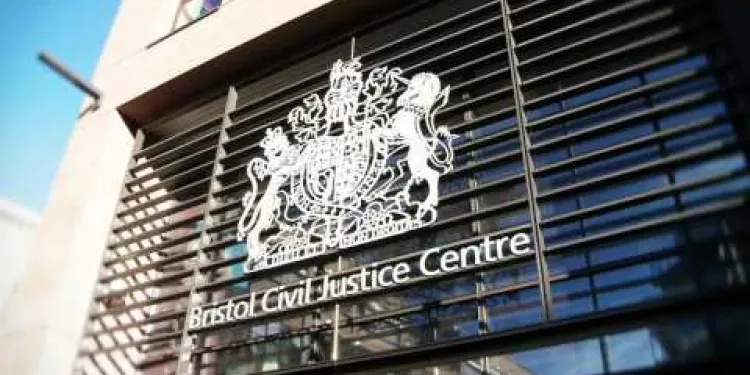
The Family Court without a Lawyer - Video 1 of 3
Relevance: 50%
-
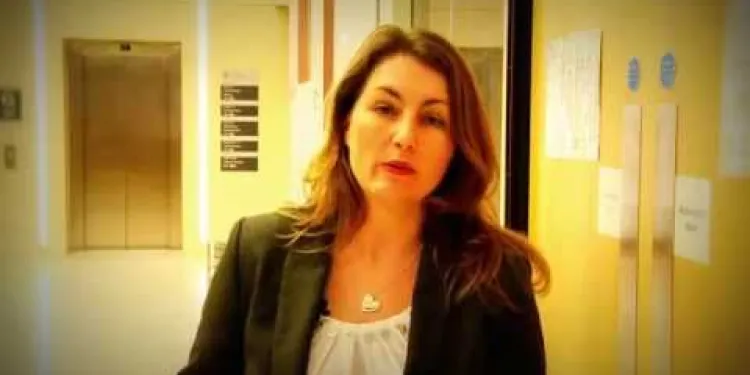
The Family Court without a Lawyer
Relevance: 49%
-
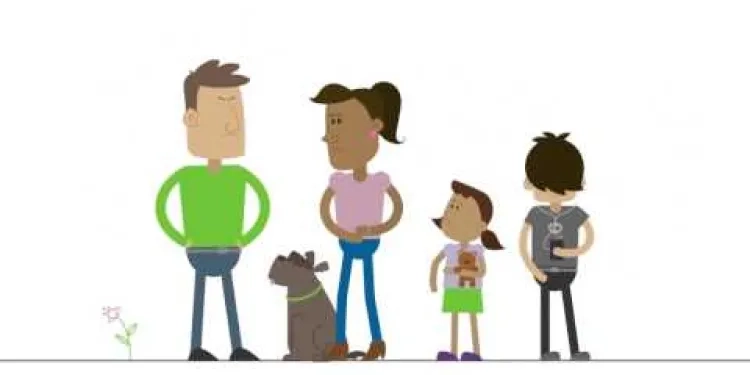
A Guide to the Divorce Process
Relevance: 46%
-

Divorce UK (England and Wales) | UK Divorce Process and Overview Explained PART 1 | BlackBeltBarrister
Relevance: 45%
-
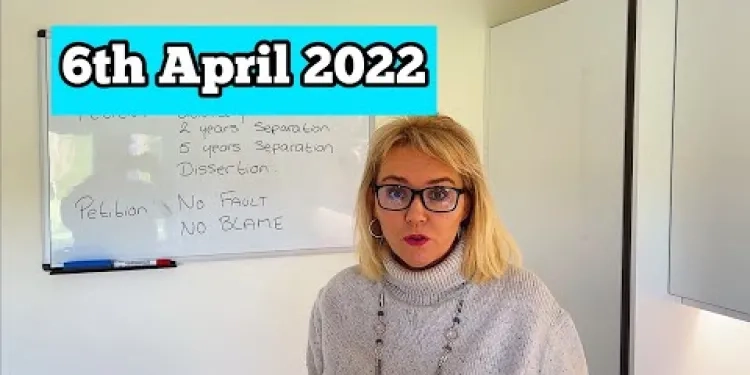
NO FAULT DIVORCE (What is there to know)
Relevance: 44%
-
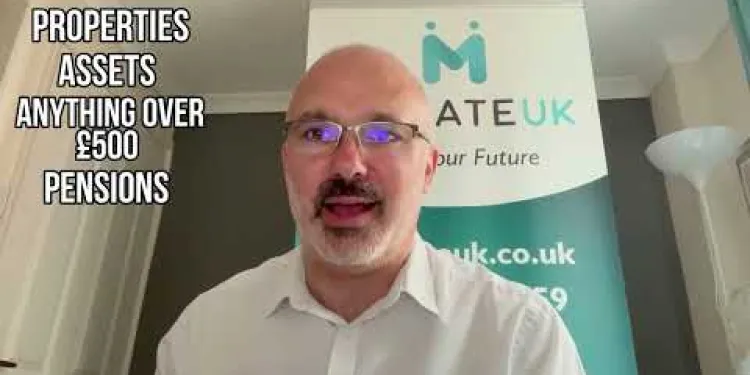
Ultimate Guide to Financial Disclosure on Divorce in the UK
Relevance: 43%
-

Understanding Your Rights in Divorce Proceedings
Relevance: 42%
-
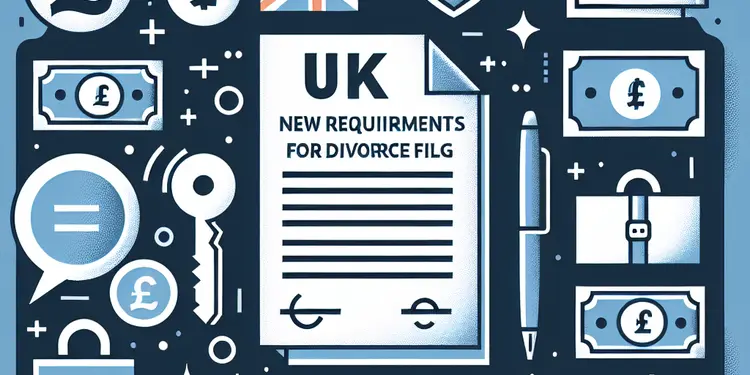
Are there any new requirements for divorce filings in 2026?
Relevance: 41%
-
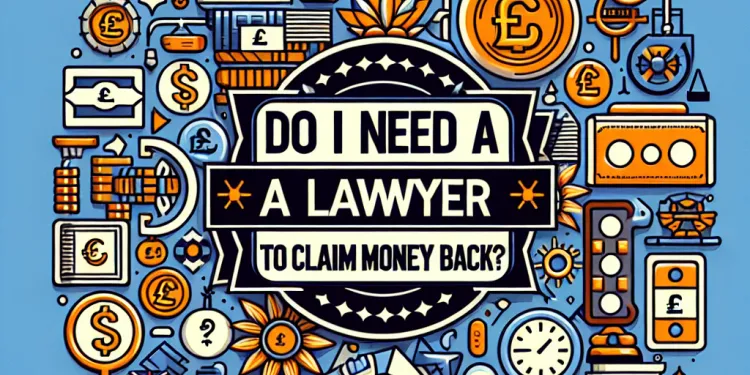
Do I need a lawyer to claim money back?
Relevance: 41%
-

Understanding Your Rights During Divorce Proceedings in the UK
Relevance: 40%
-
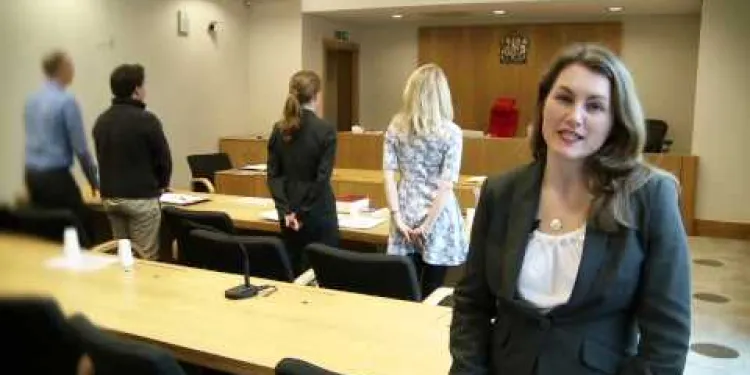
The Family Court without a Lawyer - Video 2 of 3
Relevance: 40%
-

Can firefighter pension benefits be divided in a divorce?
Relevance: 39%
-

What role do lawyers play in drug offence cases?
Relevance: 39%
-
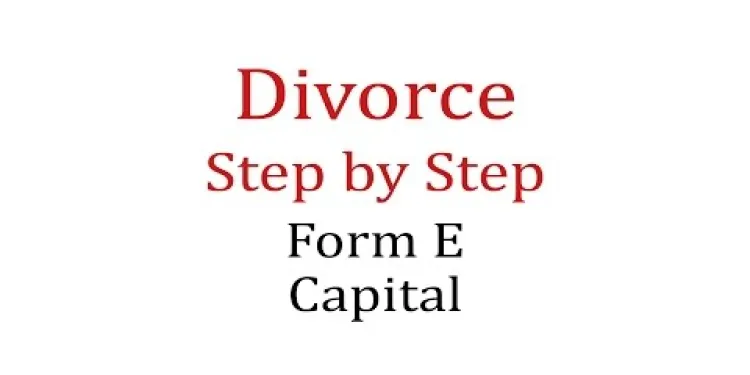
Divorce Step By Step - Form E - Capital
Relevance: 39%
-
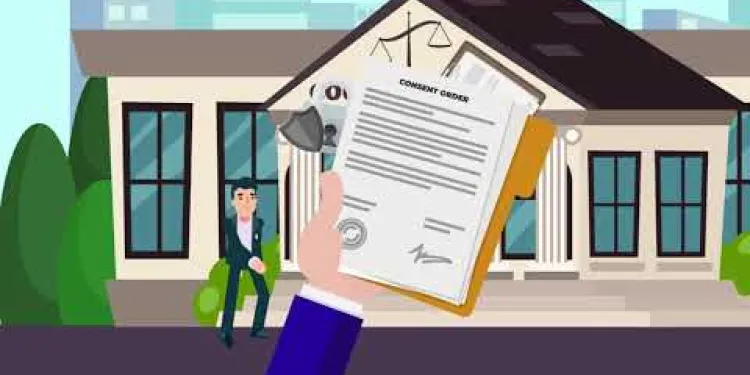
The 4 Steps to Agree a Financial Settlement on Divorce UK
Relevance: 38%
-
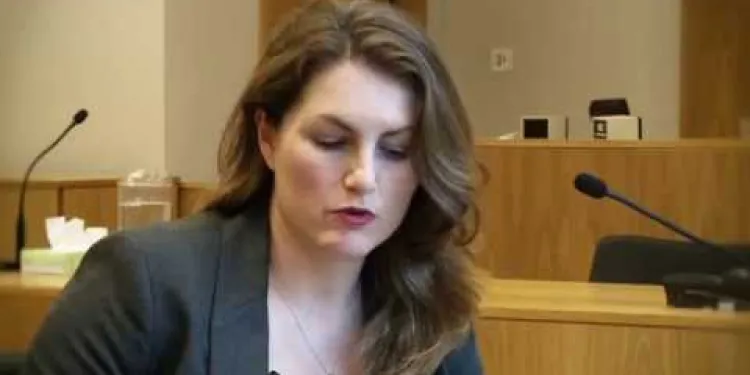
The Family Court without a Lawyer - Video 3 of 3
Relevance: 37%
-

Does the Attorney General in the UK have to be a lawyer?
Relevance: 37%
-

Divorce - How To Rebuild Your Life After Losing Everything
Relevance: 36%
-

What should I do if I can't afford a lawyer for the eviction process?
Relevance: 31%
-

Top 10 Tips for Healthy Eating
Relevance: 29%
-
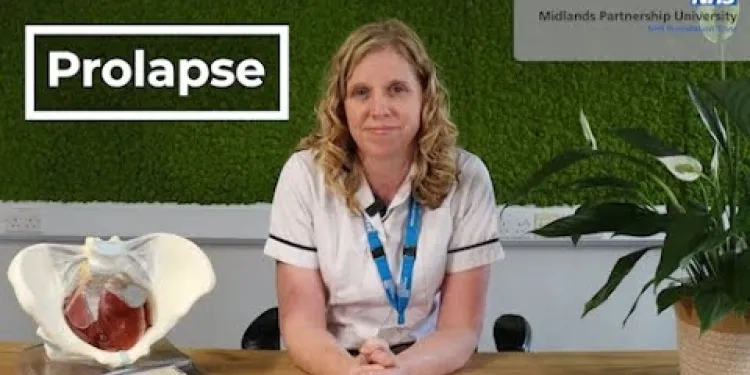
Prolapse Types and Tips
Relevance: 28%
-

When should you consult a lawyer about a boundary dispute?
Relevance: 28%
-

Tips for breathlessness | NHS
Relevance: 27%
-

Dental Health: Tips for All Ages
Relevance: 26%
-
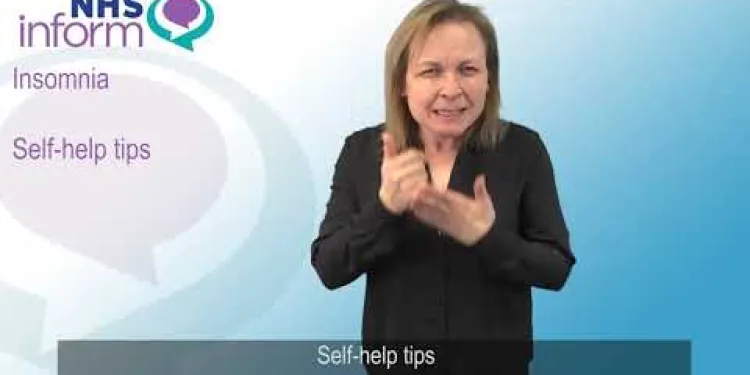
BSL - Insomnia self-help tips
Relevance: 25%
-
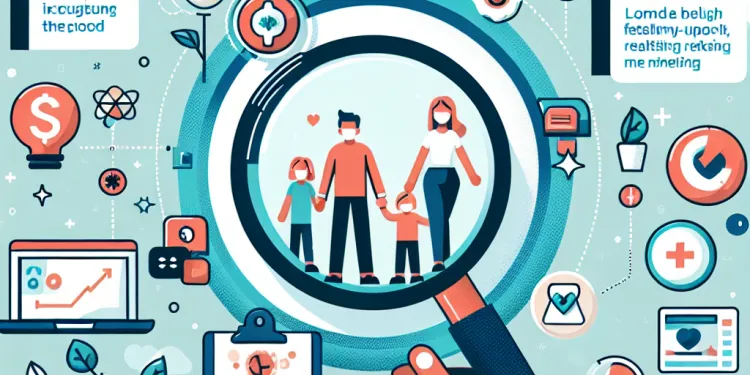
Healthy Family Lifestyle Tips Post-Pandemic
Relevance: 25%
-
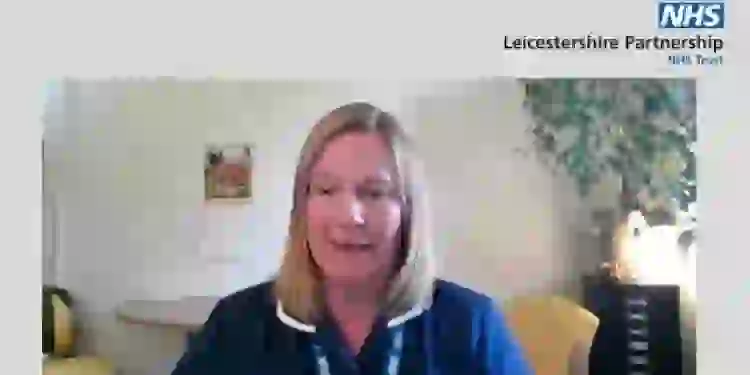
Needle phobia - Top tips video
Relevance: 25%
-

Navigating the UK Cost of Living Crisis: Tips for Families
Relevance: 25%
-
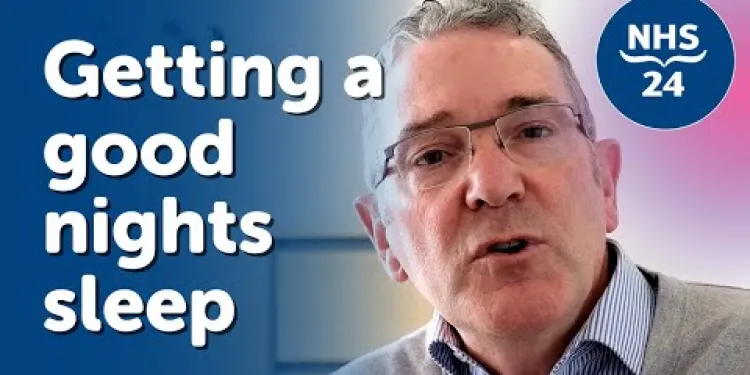
Top Tips to Help You Get a Good Nights Sleep
Relevance: 24%
-
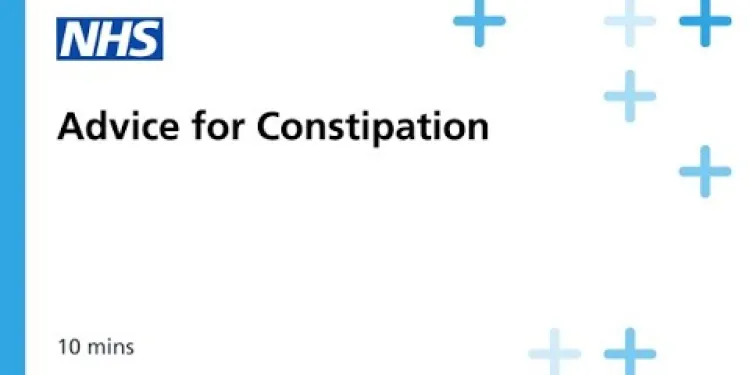
Constipation: Tips for those suffering with constipation
Relevance: 24%
-
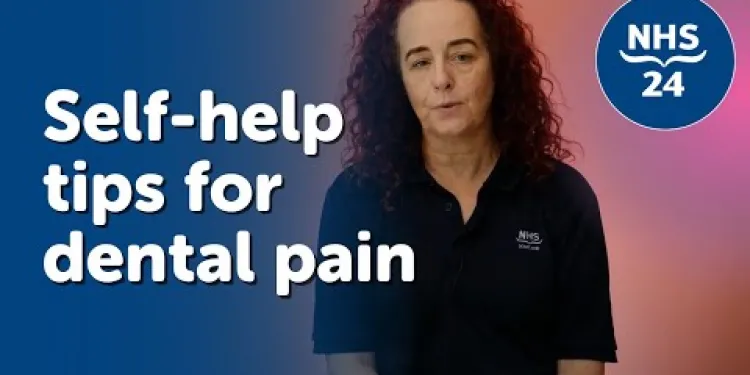
NHS 24 | Self-help tips for dental pain
Relevance: 24%
-

Are there any changes to spousal support regulations in 2026?
Relevance: 23%
-

Uk Buy to Let for Older Clients - Mortgage Options Tips and Criteria
Relevance: 20%
-

Can legal representation speed up the process of a case coming to court?
Relevance: 20%
-

Planning Your Funeral in Advance? | Expert Tips from Celebrants
Relevance: 19%
-

What are some tips for reducing screen time to improve sleep?
Relevance: 19%
-

Bridging Finance Dangers - Tips on common problems, risks and lending rules in the UK
Relevance: 19%
-

Navigating Changes in Family Law Post-Brexit
Relevance: 19%
I'm Getting a Divorce | Tips From a Divorce Lawyer
Understanding Your Legal Options
Going through a divorce can be an overwhelming and complex process. In the UK, divorces are governed by the Matrimonial Causes Act 1973. It's essential to understand your legal rights and options. Consulting a specialist family lawyer can provide clarity on issues like property division, child custody, and spousal maintenance. A lawyer can help you navigate this emotionally and legally challenging time with expert advice and support.Communicate and Document Everything
Good communication is critical during a divorce. Ensure all communications with your spouse are respectful and to the point. Additionally, document every interaction and keep records of any agreements made. Written documentation could be invaluable should disputes arise during the divorce proceedings. Maintaining this documentation can provide a solid basis for your case in negotiations or court.Focus on Your Financial Health
One major aspect of divorce in the UK is the financial settlement. This involves dividing matrimonial assets fairly, which can include property, pensions, savings, and investments. It's crucial to gather all financial documents and understand your financial position. A lawyer can help you present your financial disclosures accurately, ensuring you get a fair settlement. Keep in mind that trying to hide assets is illegal and can seriously jeopardize your case.Prioritise Children’s Welfare
When children are involved, their welfare should be the top priority. UK courts always seek to act in the best interests of the child. Parental responsibilities and child arrangements, including living arrangements and visitation rights, need to be carefully considered. An amicable co-parenting agreement is always preferred, but if this isn't possible, a lawyer can help advocate for your and your children's rights.Seek Emotional Support
Divorce is not just a legal battle but an emotional one as well. Seeking professional emotional support, such as counselling or therapy, can be beneficial. Emotional resilience can significantly impact how you cope and recover throughout and after the divorce process. Support groups and trusted friends and family can also offer comfort during this distressing time.Plan for the Future
Finally, once legal proceedings are underway, start planning for your future. This could mean re-evaluating your living arrangements, career, or personal goals. Your lawyer can help you understand the long-term implications of your divorce decisions, ensuring you are prepared for life after divorce.I'm Getting a Divorce | Tips From a Divorce Lawyer
Understanding Your Legal Options
Divorce can be very hard. In the UK, laws decide how divorces work. It’s important to know your rights. A family lawyer can help you. They know about dividing property, who the children will live with, and money support. They can guide you and give advice.Communicate and Document Everything
Talking well is important during a divorce. Be respectful when talking to your husband or wife. Write down everything you talk about and any agreements. Keeping these notes can help if there are disagreements later. These notes can be very useful.Focus on Your Financial Health
Divorce involves sharing money and property fairly. This means splitting houses, savings, and other things. Collect all your money papers and know where you stand financially. A lawyer can help make sure you get a fair share. Hiding money is not allowed and can cause problems.Prioritise Children’s Welfare
If you have children, their well-being is most important. UK courts want the best for the children. Decide where they will live and how often they see each parent. It’s best if parents can agree, but if not, a lawyer can help.Seek Emotional Support
Divorce is not just about law; it’s also about feelings. Talking to a counsellor or therapist can help. Strong feelings can affect how you handle the divorce. You can also talk to friends, family, or join support groups.Plan for the Future
Think about what comes next after the divorce starts. Look at where you want to live, work, and your goals. Your lawyer can explain how the divorce might affect your future. They can help you get ready for life after divorce.Frequently Asked Questions
What is the legal process for getting a divorce in the UK?
In the UK, the legal process for getting a divorce involves submitting a divorce petition to the court, providing evidence of the marriage breakdown, and obtaining a decree nisi followed by a decree absolute, which finalizes the divorce.
How long does it take to get a divorce in the UK?
The time it takes to get a divorce in the UK varies, but it generally takes between 6 to 12 months from the filing of the divorce petition to the granting of the decree absolute.
What are the grounds for divorce in the UK?
The sole ground for divorce in the UK is the irretrievable breakdown of the marriage, which must be demonstrated by one of five facts: adultery, unreasonable behaviour, desertion, two years of separation with consent, or five years of separation without consent.
Do I need a solicitor to get a divorce?
While you are not legally required to have a solicitor to get a divorce, it is highly advisable to seek legal advice to ensure that the process is handled correctly and to protect your interests, especially in complex cases involving finances or children.
How much does it cost to get a divorce in the UK?
The cost of a divorce in the UK includes court fees, which are £593 to file for a divorce, and additional costs for legal advice or representation, which can vary widely depending on the complexity of the case.
Can we get a 'no-fault' divorce in the UK?
Yes, as of April 2022, the UK has introduced 'no-fault' divorce, allowing couples to divorce without having to apportion blame for the breakdown of the marriage.
What happens to our assets in a divorce?
During a divorce, assets and liabilities are divided as part of the financial settlement. The court aims for a fair distribution, taking into account factors such as the length of the marriage, each party's financial needs and contributions, and the welfare of any children.
How is child custody decided in a divorce?
Child custody, or child arrangements, are decided based on the best interests of the child. Courts encourage parents to agree on arrangements, but if they cannot, the court will make a decision based on factors like the child's needs, the parents' ability to meet those needs, and the child's own wishes.
What is mediation and do we need it?
Mediation is a process where an independent mediator helps you and your spouse reach agreements on issues such as finances and child arrangements. It is often required before you can go to court, except in certain circumstances like domestic abuse.
Can I stay in the family home during the divorce?
Whether you can stay in the family home during a divorce depends on various factors, including both parties' financial situations and the needs of any children involved. Legal advice can help you understand your rights and options.
Will I have to go to court for my divorce?
Not all divorces require going to court. If both parties agree on the divorce and financial/child arrangements, you may only need to submit paperwork. However, unresolved disputes might require court involvement.
What happens if my spouse contests the divorce?
If your spouse contests the divorce, the process may take longer and involve court hearings. It's advisable to seek legal representation to navigate the contested proceedings effectively.
Can I get spousal maintenance after divorce?
You may be eligible for spousal maintenance if there is a significant financial disparity between you and your spouse. The court considers factors such as the length of the marriage, your financial needs, and earning capacity when deciding on maintenance.
What if my spouse doesn't comply with the financial agreement?
If your spouse does not comply with the agreed financial settlement, you can take legal action to enforce the agreement. It's important to have court-approved consent orders to ensure enforceability.
How will divorce affect my pension?
Pensions are considered marital assets and can be split during a divorce. Options include pension sharing orders, offsetting, or earmarking orders, depending on the specifics of the case and court orders.
How do you get a divorce in the UK?
Getting a divorce means ending a marriage. Here's how it works in the UK:
- First, you must be married for at least one year.
- Next, fill out a form called a 'divorce petition.'
- Send the form to a court. You might have to pay a fee.
- The court will check the form. If everything is okay, they will send it to your husband or wife.
- Your husband or wife can agree to the divorce or say they don’t agree.
- If they agree, the court can give you a paper called a 'decree nisi.'
- After six weeks, you can ask for the final paper called a 'decree absolute.' This ends the marriage.
It's good to get help from a lawyer. They can give advice and make things easier.
In the UK, if you want a divorce, you need to tell the court that your marriage is over. You do this by filling out a form called a divorce petition. You need to show reasons why the marriage did not work. First, the court gives you a paper called a decree nisi. Later, you get another paper called a decree absolute. This last paper means you are officially divorced.
A helpful tool for understanding this process is to use picture diagrams or timelines to visualize each step. Text-to-speech software can also be useful for reading support.
How long does a divorce take in the UK?
Getting a divorce in the UK can take time. It usually takes around 6 months. But sometimes, it can take longer. It depends on things like how busy the court is or if both people agree.
For help, you can talk to someone who knows about law, like a lawyer. They can explain what you need to do. Using calendars and reminders can help you keep track of important dates.
Getting a divorce in the UK usually takes between 6 to 12 months. This is from when you first ask for a divorce to when it is finished.
Why do people get a divorce in the UK?
People can get a divorce in the UK for a few reasons:
- If they don't love each other anymore and can't fix it.
- If one person hurts the other.
- If one person does something wrong, like cheating.
- If they have been living apart for more than 2 years.
- If they have been apart for 5 years, even if one person does not want a divorce.
Here are some things that can help:
- Talk to a family member or friend you trust.
- Go to a support group for people getting divorced.
- Speak with a lawyer for advice.
In the UK, if you want a divorce, you must show that the marriage has broken down and can't be fixed. There are five ways to do this:
- Someone cheated (adultery).
- The other person is behaving badly (unreasonable behaviour).
- One person left for good (desertion).
- You have lived apart for two years and agree to divorce (two years of separation with consent).
- You have lived apart for five years, and it doesn’t matter if the other person agrees or not (five years of separation without consent).
If reading is difficult, you can:
- Use tools that read text out loud.
- Break down long sentences into shorter ones.
- Ask someone to help explain the information.
Do I need a lawyer to get a divorce?
A lawyer is someone who knows a lot about the law. Here's what you need to know:
- **No, you do not have to have a lawyer.** You can get a divorce without one. But a lawyer can help because they know the rules.
- **A lawyer can make sure everything is fair.** They can help if you and your partner do not agree.
- **You can get help from a legal advice service.** They can tell you what steps to take.
- **You can use online tools.** Some websites give you help to do it yourself.
Remember, it is a big choice. It is okay to ask for help!
You do not have to have a lawyer to get a divorce. But, it is a good idea to talk to one. A lawyer can help make sure everything is done right. They can also help protect you in tricky situations, like if children or money are involved.
How much money do you need to get a divorce in the UK?
Getting a divorce in the UK costs money.
Here are some things to think about:
- Court Fee: You pay the court. This usually costs money.
- Lawyer: If you get help from a lawyer, it costs extra money.
- Help Services: You can get help from services that give advice about divorce. Some might be free or cost less.
You can use a calculator online to see how much you might spend.
Getting a divorce in the UK costs money.
First, you pay £593 to the court to start the divorce.
You might also pay extra for a lawyer to help you. This can cost different amounts of money, depending on how difficult the divorce is.
Can people in the UK get a divorce without blaming each other?
Yes, people in the UK can get a divorce without saying it's anyone's fault. This is called a 'no-fault' divorce.
Helpful Tips:
- Read together with a friend or family member.
- Ask for help from someone you trust if the words are new or hard.
- Use a dictionary or online tool to look up difficult words.
Yes, from April 2022, the UK made a new rule for divorce. Now, couples can get a divorce without blaming each other for the marriage ending.
What happens to our things in a divorce?
When people get a divorce, they have to split their money and things they owe. This is called a financial settlement. The judge tries to split everything fairly. They look at how long the couple was married, how much money each person needs, what each person gave to the marriage, and what is best for the children.
How do parents decide who looks after the kids in a divorce?
When parents separate, they need to decide who will take care of the children.
The judge will help if parents can't agree. The judge listens to both parents and thinks about what is best for the kids.
Some ways to help understand this are using pictures or stories. Asking someone you trust can also help explain it.
Deciding who takes care of a child is all about what is best for the child. The court wants parents to agree on a plan, but if they cannot do that, the court will decide. They look at what the child needs, how well the parents can take care of the child, and what the child wants.
What is mediation and do we need it?
Mediation is a way to solve problems. It helps people agree or find a solution.
A person called a mediator helps both sides talk and listen to each other.
Mediation is helpful when people are stuck and need help to decide.
You might need mediation if you cannot agree on your own.
You can use pictures or simple notes to help understand better.
Mediation is a way for you and your partner to talk and agree on important things. A trained helper, called a mediator, will be with you. You can decide on money and plans for your children. You usually need to try mediation before going to court unless there's a reason like someone being hurt.
Can I live at home during divorce?
Are you and your partner getting a divorce? You might wonder if you can still live in your family home. Here are some easy tips:
- Talk to a family member or friend you trust. They can help you understand your choices.
- Try using simple words to talk with your partner about living at home.
- Ask a lawyer or a helpful person what is best for you and your family.
- Use tools like picture books or charts. These can make things easier to understand.
Remember, it's okay to ask for help. It's important to feel safe and happy where you live.
If you are getting a divorce, whether you can stay in the family home depends on a few things. These things include how much money both people have and if there are kids who need the house. Talking to a lawyer can help you know what you can do and what your choices are.
You might find it helpful to use pictures or write things down when you talk to a lawyer. You can also ask someone you trust to come and help you understand what the lawyer says.
Will I have to go to court for my divorce?
Do I need to go to court to get a divorce?
Getting a divorce means that you are ending your marriage. You might worry about going to court.
Sometimes, you do not have to go to court. You and your partner can agree on things by talking or using a helper. A helper can be a mediator. A mediator is someone who helps people agree.
If you and your partner agree on everything, the judge can look at your papers and say it is okay without you going to court.
If you and your partner do not agree, you might have to go to court. In court, a judge will help make the decision.
If you are worried about court, you can ask a lawyer for help. A lawyer is someone who knows the law and can help you understand what to do.
You can also ask someone you trust to talk about your feelings.
You do not always need to go to court to get a divorce. If both people agree on the divorce and what happens with money and children, you might only need to fill out some forms. But if you cannot agree, you might have to go to court.
It can help to use a calm voice when talking about these things. Try writing down what you want to say. You can also ask a trusted friend or use an app to help with planning and understanding.
What if my husband or wife does not agree to the divorce?
If your husband or wife does not want to get divorced, this is called “contesting the divorce.”
Here is what you can do:
- Talk to a lawyer. They can help you understand what to do next.
- Try talking to your husband or wife. Maybe you can agree to some things.
- You might need to go to court. A judge will decide what happens next.
- Getting some help from a counselor or mediator can also be useful.
If your husband or wife does not agree with the divorce, it might take more time. You might need to go to court. It is a good idea to get a lawyer to help you. They can make the process easier.
Can I get money from my ex after divorce?
You might get money from your husband or wife if you don't have enough money and they do. The court looks at things like how long you were married, how much money you need, and how much money you can earn when deciding this.
What if my spouse doesn't follow the money agreement?
If your husband or wife is not doing what you both agreed about money, here is how you can get help:
- Talk to Them: Try to speak calmly and remind them of the agreement.
- Get Help: Ask a family member or friend to help talk to your spouse.
- Use Mediation: A mediator is a person who can help you both agree. You can find a mediator to help make things right.
- Legal Advice: You can talk to a lawyer. A lawyer knows about the law and can tell you what to do.
If you need help reading or understanding, you can ask someone you trust, like a parent, teacher, or friend, to help you. There are also apps like text-to-speech that can read things out loud to you.
If your husband or wife does not do what they promised with money, you can ask a judge to help make sure they do it. Having legal papers from the court can help make sure this happens.
What happens to my pension if I get a divorce?
A pension is money you save for when you stop working. If you get divorced, you can share the pension. There are different ways to do this. You can share the pension, use it in another way, or set rules for how it is used. The court will help decide the best way.
Useful Links
This website offers general information and is not a substitute for professional advice.
Always seek guidance from qualified professionals.
If you have any medical concerns or need urgent help, contact a healthcare professional or emergency services immediately.
Some of this content was generated with AI assistance. We’ve done our best to keep it accurate, helpful, and human-friendly.
- Ergsy carfully checks the information in the videos we provide here.
- Videos shown by Youtube after a video has completed, have NOT been reviewed by ERGSY.
- To view, click the arrow in centre of video.
- Most of the videos you find here will have subtitles and/or closed captions available.
- You may need to turn these on, and choose your preferred language.
- Go to the video you'd like to watch.
- If closed captions (CC) are available, settings will be visible on the bottom right of the video player.
- To turn on Captions, click settings .
- To turn off Captions, click settings again.
More Items From Ergsy search
-

I'm Getting a Divorce | Tips From a Divorce Lawyer
Relevance: 100%
-

Divorce UK: What happens with the money in a divorce?
Relevance: 52%
-

The Family Court without a Lawyer - Video 1 of 3
Relevance: 50%
-

The Family Court without a Lawyer
Relevance: 49%
-

A Guide to the Divorce Process
Relevance: 46%
-

Divorce UK (England and Wales) | UK Divorce Process and Overview Explained PART 1 | BlackBeltBarrister
Relevance: 45%
-

NO FAULT DIVORCE (What is there to know)
Relevance: 44%
-

Ultimate Guide to Financial Disclosure on Divorce in the UK
Relevance: 43%
-

Understanding Your Rights in Divorce Proceedings
Relevance: 42%
-

Are there any new requirements for divorce filings in 2026?
Relevance: 41%
-

Do I need a lawyer to claim money back?
Relevance: 41%
-

Understanding Your Rights During Divorce Proceedings in the UK
Relevance: 40%
-

The Family Court without a Lawyer - Video 2 of 3
Relevance: 40%
-

Can firefighter pension benefits be divided in a divorce?
Relevance: 39%
-

What role do lawyers play in drug offence cases?
Relevance: 39%
-

Divorce Step By Step - Form E - Capital
Relevance: 39%
-

The 4 Steps to Agree a Financial Settlement on Divorce UK
Relevance: 38%
-

The Family Court without a Lawyer - Video 3 of 3
Relevance: 37%
-

Does the Attorney General in the UK have to be a lawyer?
Relevance: 37%
-

Divorce - How To Rebuild Your Life After Losing Everything
Relevance: 36%
-

What should I do if I can't afford a lawyer for the eviction process?
Relevance: 31%
-

Top 10 Tips for Healthy Eating
Relevance: 29%
-

Prolapse Types and Tips
Relevance: 28%
-

When should you consult a lawyer about a boundary dispute?
Relevance: 28%
-

Tips for breathlessness | NHS
Relevance: 27%
-

Dental Health: Tips for All Ages
Relevance: 26%
-

BSL - Insomnia self-help tips
Relevance: 25%
-

Healthy Family Lifestyle Tips Post-Pandemic
Relevance: 25%
-

Needle phobia - Top tips video
Relevance: 25%
-

Navigating the UK Cost of Living Crisis: Tips for Families
Relevance: 25%
-

Top Tips to Help You Get a Good Nights Sleep
Relevance: 24%
-

Constipation: Tips for those suffering with constipation
Relevance: 24%
-

NHS 24 | Self-help tips for dental pain
Relevance: 24%
-

Are there any changes to spousal support regulations in 2026?
Relevance: 23%
-

Uk Buy to Let for Older Clients - Mortgage Options Tips and Criteria
Relevance: 20%
-

Can legal representation speed up the process of a case coming to court?
Relevance: 20%
-

Planning Your Funeral in Advance? | Expert Tips from Celebrants
Relevance: 19%
-

What are some tips for reducing screen time to improve sleep?
Relevance: 19%
-

Bridging Finance Dangers - Tips on common problems, risks and lending rules in the UK
Relevance: 19%
-

Navigating Changes in Family Law Post-Brexit
Relevance: 19%


